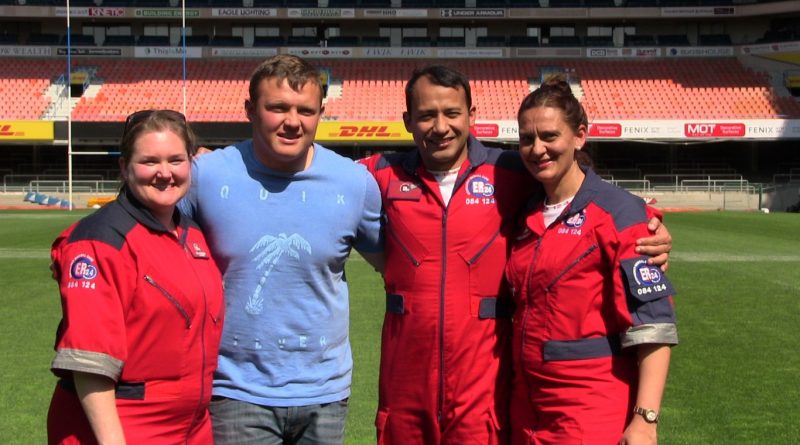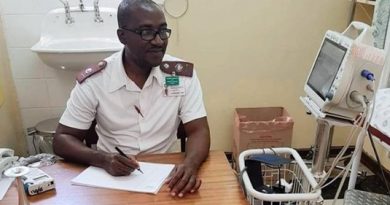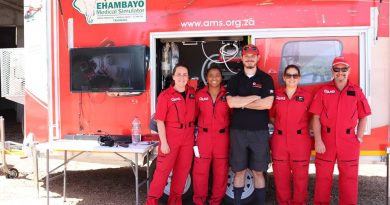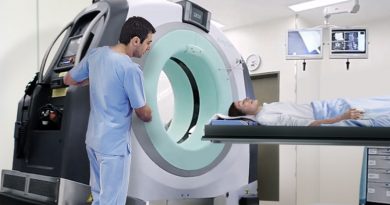My heart stopped – But my life outside rugby began
A red scar of about 8 cm covers the left side of Daniel du Plessis’ chest. He would have liked to have boasted with the Springbok emblem on his chest, but his story turned out a little differently than anticipated.
On 5 September 2015, Daniel du Plessis was playing for the DHL WP Under-21 rugby team against the Leopards from North West Province at DHL Newlands. When the scrum collapsed at the 22-meter line, Daniel, who plays hooker, fell to his knees, got up slowly and looked very disorientated. From the sideline, keeping a close eye on the players, the ER24 team could see something didn’t look right. Daniel collapsed on the field shortly afterwards.
This month marks exactly two years after Daniel’s near-death experience.
Lenise van der Westhuizen, Tao Carstens, Abdur-Razak Ganie, Waleed Nazier, Claude Saunders and Estiaan Cronje were some of the ER24 medics who assisted Daniel on that day.
“We ran onto the field and Dr Karen Schwabe (the DHL WP Under-21 team doctor) started the assessment. At that point Daniel wasn’t breathing and he went into ventricular fibrillation. We had to do CPR immediately,” said Abdur-Razak, an Intermediate Life support medic.
“I thought I was seeing a flat line and that this player was dead,” said Lenise.
“We responded very quickly and everyone knew what they needed to do. The time frame was within the golden hour. 18 minutes to be exact from when we left the field until arriving at the hospital,” said Tao. The Golden Hour is often referred to as the first hour after a traumatic injury, when emergency treatment is most likely to be successful.
Daniel was transported to Vincent Palotti hospital and put into an induced coma. He remained in the hospital for two weeks before being moved to Mediclinic Panorama for three more weeks.
While Daniel suffered a cardiac arrest, his parents, Bruce and Janice du Plessis, were in Saudi Arabia where Bruce was contracted to work. “A friend of ours sent me a Whatsapp message to say that Daniel was playing a great game. Shortly afterwards she said that Daniel went down and that they are performing CPR. My hair stood up. I first told my wife Daniel suffered a concussion because I didn’t want to scare her,” said Bruce.
They managed to get a flight home and arrived in Cape Town on the Monday. “The worst thing was waiting. We didn’t have any form of communication while we waited for our connecting flight in Abu Dhabi. We had to wait there for six hours. All that we could think of was, is he okay? Has he worsened? When we eventually got to the hospital I was shocked to see him. He was still heavily sedated and we didn’t know if he had suffered any brain damage,” said Bruce. “All I can remember of that day was eating breakfast. The rest is a blur,” said Daniel.
Miraculously, and with fast and efficient medical help at the time, Daniel survived. He does sport a new device that was implanted in his heart which he jokingly refers to as something that can help him to ‘reboot’. “I have an ICD that is similar to a pacemaker. It makes sure that your heart rate doesn’t go too high or too low. It is precautionary so that I don’t have to live my life in fear. If I had to collapse now it will just give me a reboot and I will get up and continue with this interview,” Daniel laughs.
Daniel doesn’t even take a moment to pause at the question if he thinks he would have become a Springbok.
“I know I would have become one. Rugby was my life. It meant everything to me. But I’ve learnt over these past two years that there is so much more to life,” said Daniel.
He hopes to attend UWC next year and study towards becoming a teacher. He has assisted with coaching rugby for the last two seasons at the Paarl Boys High School.
“These medical guys who were there that day; this isn’t a job for them, this is a calling. DHL Newlands, ER24 and the Western Province Rugby Union was put to the ultimate test and they came out with 200%,” said Bruce.
Earlier this year, Daniel and his parents framed a letter of eternal gratitude and gave it to the ER24 staff and the doctor who were there on the day. “You don’t always get a thank you. People don’t always know who treated them or who saved their life. It is amazing to see Daniel now. I can’t believe how great he looks, I mean he could have been dead. It really is amazing!” said Lenise.
“It was a token of deep appreciation because we needed to say thanks. But how do you put into words what it meant for us knowing they saved our son’s life?” said Bruce.




